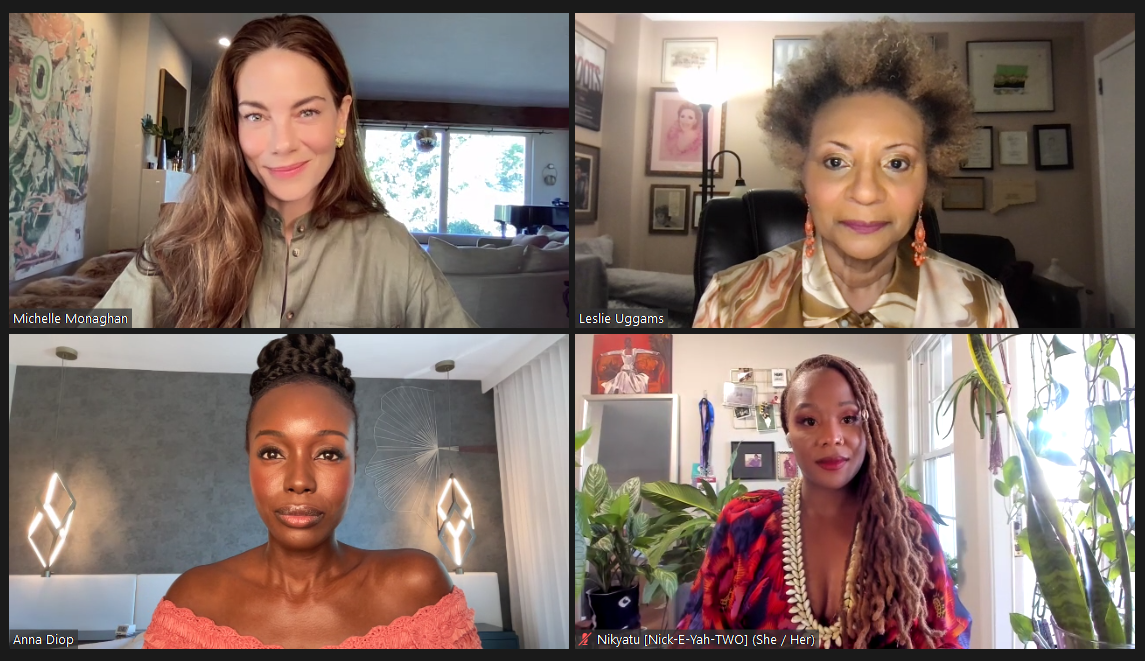by Katie Small
Motherhood and the immigrant experience are big themes in many of this year’s Festival selections, and Nanny delivers both. In the pre-recorded introduction to her film, director Nikyatu Jusu, a daughter of Sierra Leone immigrants, describes it as “a love letter to immigrant mothers, marginalized mothers, mothers who sacrifice so much to create a new life for their children in America.”
Jusu returns to the Sundance Film Festival after the 2019 premiere of her short, Suicide by Sunlight; Nanny is her first feature. It is a haunting and spellbinding story that blends drama with supernatural horror elements while exploring the costs of pursuing the American dream. The story centers around Aisha, a Senegalese immigrant who is doing all she can to bring her young son to New York City where she has found work as a nanny for a wealthy Manhattan family. Part of the job involves carefully navigating the tense atmosphere between the workaholic, overbearing mother and her disillusioned, distant husband. Meanwhile, Aisha is haunted by a supernatural entity derived from West African folklore, a presence that invades both her dreams and reality.
As a daughter of Senegalese immigrants, Anna Diop was a natural choice for the role of Aisha. During the post-premiere Q&A she described how she’d been yearning to share her mother’s story for years, and how Jusu’s script felt like a perfect fit. “To be an immigrant takes a lot of ambition and a lot of fearlessness,” Diop says. “To come to a foreign place, and dare to make a life for yourself…It’s my mother’s story, and because it’s my mother’s story, it’s very much my story.”
Jusu was also very close to her own mother, and described how influential that relationship was in not only crafting the story, but in hiring her crew as well, which is almost entirely women-led. “My first love was my mom — I think she’s the most brilliant, beautiful, gorgeous woman,” she says. “And so I have so much love for women. We had a lot of strong feminine energy on set. I hope people realize, the women who corralled around Aisha in this story are essentially who helped her to realize her power.”
Diop was in agreement. “We had giants. They were all brilliant, brilliant women and I’ve never, ever, ever worked on any set — I’ve been doing this eight years now — that had this many women, across the board, in every position of influence and power.”

